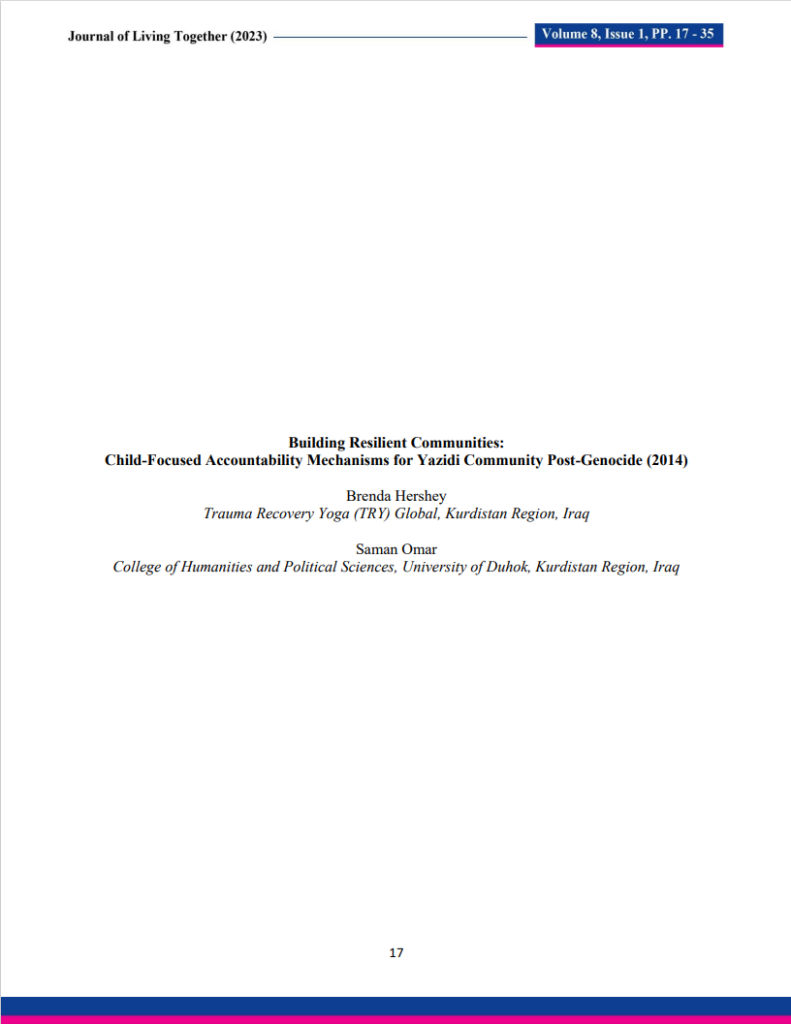Interfaith Dialogue to De-Radicalize Radicalization: Storytelling as Peacebuilding in Indonesia
Abstract:
In response to the history of ethno-religious conflict in Indonesia, there is a strong commitment from governmental and non-governmental organizations alike to constructively and creatively address such conflict as a way to preserve support for religious pluralism, and to take a strong stance against radicalization. One of the most effective tools used to work toward this end is interfaith dialogue. This paper explores the use of interfaith dialogue as a peacebuilding tool in Indonesia, which has been effectively used to build counternarratives of ethno-religious identity. Storytelling, in the context of dialogue, operates as a peacebuilding process that forges common ground, and ultimately co-creates emergent narratives of collaboration and reconstruction. As such, storytelling creates an invitation for the restoration of dignity, something that is easily lost during conflict, and something that must be regained for resolution to take root. The conclusions situate interfaith dialogue as both a transformative tool in the aftermath of ethno-religious conflict, and as a possible means to prevent future atrocities.
Read or download full paper:
Journal of Living Together, 2-3 (1), pp. 92-102, 2016, ISSN: 2373-6615 (Print); 2373-6631 (Online).
@Article{Byron2016
Title = {Interfaith Dialogue to De-Radicalize Radicalization: Storytelling as Peacebuilding in Indonesia}
Author = {Amanda Smith Byron}
Url = {https://icermediation.org/interfaith-dialogue-to-de-radicalize-radicalization/}
ISSN = {2373-6615 (Print); 2373-6631 (Online)}
Year = {2016}
Date = {2016-12-18}
IssueTitle = {Faith Based Conflict Resolution: Exploring the Shared Values in the Abrahamic Religious Traditions}
Journal = {Journal of Living Together}
Volume = {2-3}
Number = {1}
Pages = { 92-102}
Publisher = {International Center for Ethno-Religious Mediation}
Address = {Mount Vernon, New York}
Edition = {2016}.


